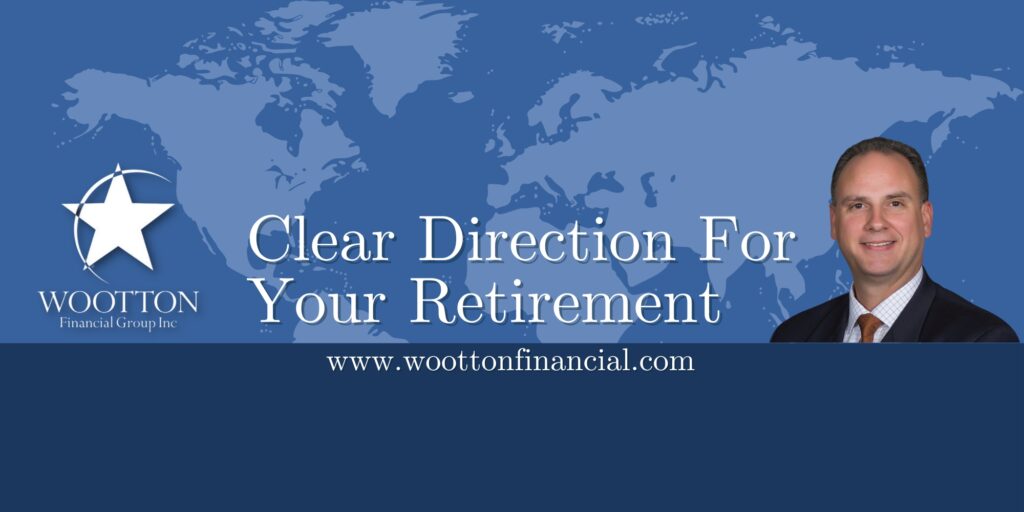What are Your Biggest Financial Concerns?
In today’s ever-evolving and uncertain financial landscape, investors grapple with many factors that could significantly influence their financial futures. Sometimes, it’s helpful to understand that you’re not alone in the concerns you may be facing. See if you can relate to anything that follows when it comes to your concerns.We reviewed a survey done by Global Atlantic Financial Group. The survey gives some profound insights into the sentiments of today’s investors considering the persistent uncertainty surrounding inflation, interest rates, and market returns. The survey was a wide-ranging survey targeting a diverse group of 1,001 investors aged 55-75. These individuals possess investable assets ranging from $250,000 to $1 million, and they all actively collaborate with financial professionals.The findings were enlightening, revealing several trends and attitudes prevalent among today’s investors. The biggest fact that emerged is investors are displaying a growing inclination to engage in discussions that transcend the conventional realms of stocks and bonds. They are now exploring alternative options that offer enhanced stability for their portfolios.
Just as in 2008, 2022 brought forth a unique set of challenges for investors. 60% of those surveyed were confronted with the harsh reality of losses in their portfolios (in stocks and bonds). Among this group, nearly half endured a decline exceeding 10%. This underscores the volatility and unpredictability that have gripped financial markets, leaving many investors with anxiety and uncertainty about their financial future. A whopping 92% of investors expressed deepseated concerns regarding various factors, including market volatility, the looming specter of a recession, and the persistent threat of elevated interest rates.
Notably, financial advisors have attempted to guide investors through these uncertain times. 70%of the surveyed investors reported that their advisor had initiated conversations with them regarding protective investment products with the goal of seeking to mitigate the potential impact of market downturns on their portfolio.However, the question remains as to why the advisors’ investment risk management philosophy was so lacking to begin with and why the “safer” offerings were so late. Especially, given that only 50% of those surveyed believe they currently possess adequate protection against the looming threats of market instability. While discussions about protective strategies may have begun, investors still feel insecure in the face of economic uncertainties.To formulate effective investment strategies and proper risk management, the investor’s primary objectives must be heard, understood and addressed. According to the survey, the priorities of surveyed investors are as follows:
1. 64% emphasize protecting assets in general.
2. 36% emphasize asset growth.3. 86% emphasize limiting downside market risk to preserve investments.
These priorities emphasize the need for investors to adopt some combination of five key strategies to help secure their financial future:
1. Utilizing investments offering a dependable and steady rate of return. (E.g. CD’s, Money Markets, Fixed/Fixed Index Annuities, select alternatives)
2. Safeguarding their initial investment principal. (E.g. CD’s, Money Markets, Fixed/Fixed IndexAnnuities)
3. Seeking investments generating reliable retirement income streams. (E.g. CD’s, Annuities, Bonds, select alternatives)
4. Creating predictable and guaranteed lifetime income streams beyond pensions and Social Security benefits. (E.g. Annuities)
5. Implementing Advance and Preserve investment risk management strategies seeking to manage the effects of major market declines to help maximize opportunities for growth.
As you can see, proper income diversification and non-traditional risk management (Advance and Preserve) of your portfolio is key, and everyone’s situation is unique to them. While most investors are aware of the importance of having a suitable combination of these strategies, many advisory firms are still utilizing traditional and outdated methodologies in addressing current investor’s concerns. Don’t let your retirement future fall victim to this!Today’s world is characterized by unprecedented uncertainty. As we collectively navigate the complex and rapidly evolving realm of finance, one fundamental truth remains crystal clear: investors today are motivated by a dual desire—to preserve and grow their assets while simultaneously seeking to manage potential downside risks. This is what we call, Advance and Preserve. You know and understand, as should your advisor, that this will hopefully give you better confidence and possibly a healthier portfolio into retirement.
I hope this is helpful to your retirement journey. Call us, come see us or visit us at www.woottonfinancial.com, we’d love the opportunity to help address your questions and concerns and provide you Clear Direction for Your Retirement®.
